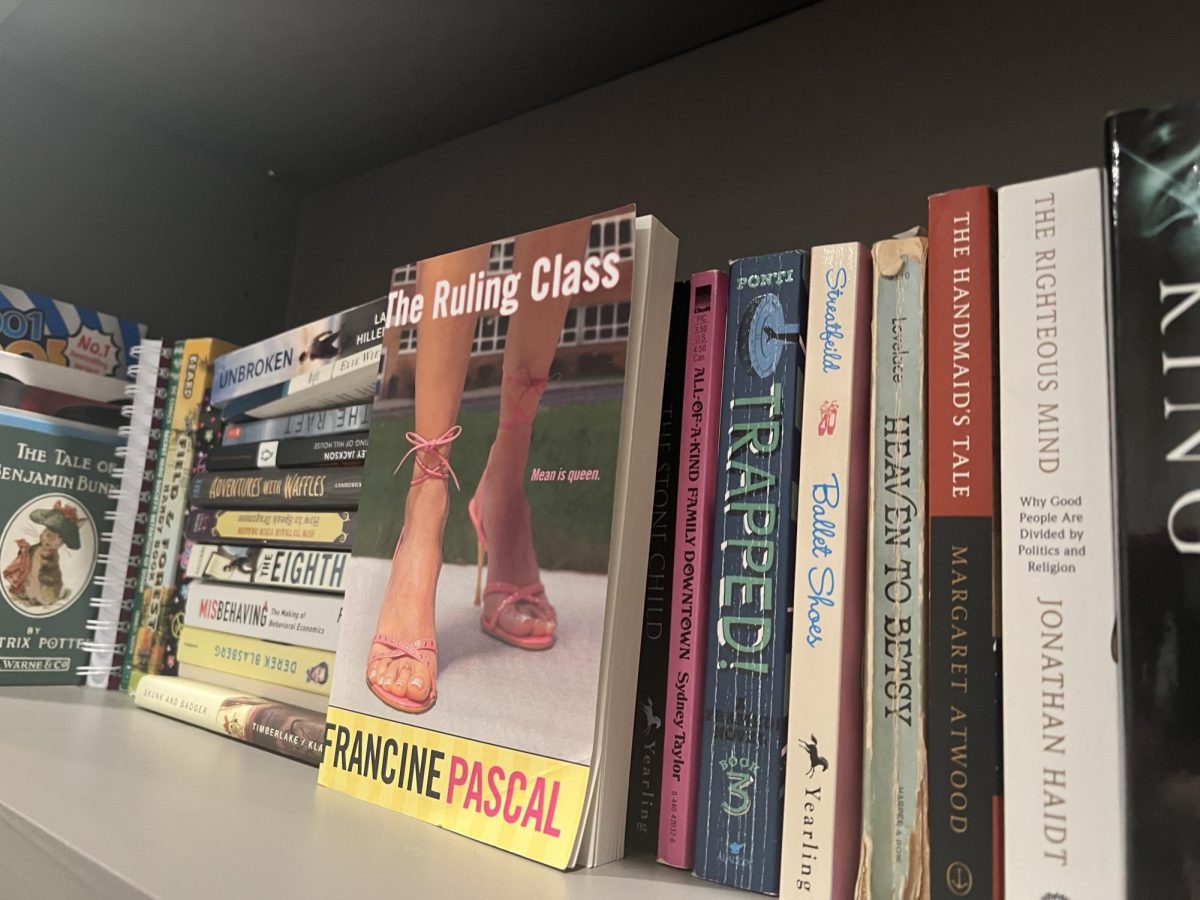Everybody knows the Highland Park stereotypes. When you tell someone you go to school here, they picture designer brands, mansions, and cars that cost more than a single family home. They might even make assumptions about the kind of person that you are – selfish, entitled, and probably too rich for your own good.
These were definitely the assumptions made by New York author Francine Pascal, famous for the “Sweet Valley High” books and the “Fearless” series. In 2004, Pascal decided to break away from her typical style and write “The Ruling Class,” a teen novel set in our very own Highland Park High School. The book attempts to satirize real world power dynamics and class struggle through this setting.
“The Ruling Class” switches off between two narrators: Twyla Gay, who moves to the district from Lubbock, and Myrna Fry, a shallow, racist and egocentric opportunist who wants to be popular so badly that she believes she actually is.
Twyla butts heads with the beautiful and popular Jeanette Sue, who is the leader of the Ruling Class, or the RCs, who are the top of the high school popularity food chain. Jeanette Sue occasionally has her own narration in the book, but it gives almost no insight to her character, making her feel cartoonishly one-dimensional.
The plot is almost equally one-dimensional, but honestly, going in, the bar was so low that my expectations for plot depth and complexity were basically met. The book opens on Myrna Fry, who has been invited to eat lunch with the RCs. This is not an important plot point, but it sets up Myrna’s infatuation with the RCs and Jeanette Sue, as well as Myrna’s position as sort of the pathetic villain of the novel.
Shortly after, we are introduced to Twyla Gay. She is very quickly established as the RCs target, having committed the horrible crime of being poor. Much to Myrna’s dismay, Twyla is invited to go to Northpark Mall with the RCs, but ends up being the subject of a cruel joke. The RCs only show up for a minute before driving away, leaving Twyla all alone in the mall parking lot very late at night, causing her to have a run-in with some dangerous men.
After barely escaping, Twyla vows to seek her revenge upon Jeanette Sue and the rest of the RCs, as well Jeanette Sue’s boyfriend, Ryder McQuaid, who she incorrectly believes was driving the car. To accomplish this, she teams up with Deena Lopez, another victim of the RCs. Together, Deena, Twyla and their group of diverse misfits formulate a plan to defeat the RCs and turn the Highland Park social hierarchy on its head.
The ending of the book was surprisingly anticlimactic. I’ll just spoil the ending and tell you that, surprise surprise, the power of friendship prevails and the Ruling Class falls. Myrna, despite spending the entire book licking the shoes of Jeanette Sue and the RCs, defects to Twyla’s side at the very last page of the book.
The ending left me with a lot of unanswered questions. What happened to Jeanette Sue and the RCs that didn’t defect? Do they just have to drop out of high school now? What about the massive disruption of the school day associated with Twyla and Deena’s revenge shenanigans? Is there a sequel called “Ruling Class 2: In School Suspension”?
Ignoring the abrupt ending, the plot itself makes even less sense. Throughout the book Pascal had attempted to set up a romance between Twyla and Ryder. However, this plotline completely fails to come to fruition due to an utter and complete lack of chemistry between the two characters, who each have the personality of a slice of bread.
The world’s most boring star-crossed lovers interact exactly eight times throughout the entirety of the book, and one of those times was her going on a date with him for the explicit purpose of breaking his heart to get revenge on Jeanette Sue. Their other interactions make no sense, like when Ryder invites Twyla to play tennis seemingly in the middle of the school day. Do they go to classes? Are our school tennis courts even open to non-tennis students?
Regardless, when I first picked up this book, I had only one question in mind – how accurately does “The Ruling Class” portray Highland Park? The answer shouldn’t surprise you, but the book is almost laughably inaccurate. Places like Preston Road and Northpark Mall are mentioned in passing but are never elaborated upon. While there is something to be said about our district’s fear of anybody who dares to be different and go against the norm, the book satirizes this to such a degree that any meaningful point is lost in translation.
If you have an evening to kill and this review has piqued your interest, then I recommend giving “The Ruling Class” a go. “The Ruling Class” is a book with no plot, no character development and very little true substance. The fact remains that while negative HP stereotypes do exist, we can still laugh at ourselves and just enjoy books like this one for what they are.




